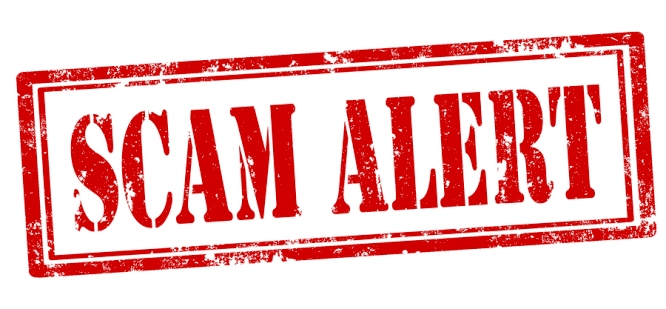AG Neronha, National Grid warn consumers to be vigilant after increased reports of scams

ID:68127799
PROVIDENCE, RI — The Rhode Island Attorney General’s Office and National Grid are warning electric and gas customers to be vigilant of potential scammers posing as bill collectors trying to take advantage of them. Over the past several weeks, there has been an increase in reported scam attempts targeting residential and business customers by phone. Both the Attorney General’s Office and National Grid want customers to know how to protect themselves.
Scammers are using a variety of methods these days to prey on their victims including phone calls, texts, email solicitation or in-person visits. The most recent phone scam is an automated message alleging to be from National Grid. The message informs consumers that they have a past due balance on their account and their power will be shut off in the next 30-40 minutes if they do not immediately make a payment using the number provided. Similar scams of trying to rush payments have been reported by utility customers across the U.S.
“Even in the midst of a pandemic there continues to be nefarious actors looking to take advantage of both our residential and business customers,” said Terry Sobolewski, president of National Grid Rhode Island. “We urge our customers to remain vigilant. If you believe you are current on your National Grid account, it’s very likely a call seeking payment is not being truthful. Hang up and call our customer service line to confirm you are in good standing and report the scam. If you are struggling to pay your bills during these times, please call us at 1.800.322.3223 or visit //ngrid.com/moretime to learn about the ways we can help and get you back on track.”
Attorney General Neronha and National Grid offer the following tips:
For suspected phone scams:
• Customers should always contact National Grid using the toll-free telephone numbers listed on the billing statement. If you are provided a phone number that does not match the numbers on the billing statement, the call may very well be a scam.
• Be vigilant. If you believe you are current on your National Grid account, it is highly likely a call seeking payment is not valid. Hang up and call the customer service number listed on your billing statement.
• Verify you are speaking with a National Grid representative. One way to do this is to ask the representative to confirm the last five digits of your National Grid account number, which they should always have available.
• If the caller doesn’t know your account number and you have any doubt the caller is a National Grid representative, or if they have any questions about account balance and are fishing for information, take charge and hang up immediately. Call National Grid or the Office of the Attorney General.
• National Grid representatives will know your account number; never offer that information to a caller.
• National Grid may ask for a payment over the phone but will leave the method of payment to the customer.
• National Grid will not contact customers demanding immediate payment by wire transfer, pre-paid debit cards, iTunes cards, Green Dot Money-Pak or any other pre-paid card service.
• Never — under any circumstances — offer personal or financial information to someone who you cannot identify.
For suspected door-to-door scams:
- Every National Grid employee carries a photo ID card, and any contractor doing work for the company is also required to carry ID. If someone requesting entry into your home or place of business does not show an ID card, don’t let that person in and please call National Grid or your local law enforcement.
- Whenever in any doubt, don’t hesitate to call National Grid or your local law enforcement.
- For more information visit: ngrid.com/scam.
Customers who have received suspicious calls can call National Grid’s Customer Contact Center to answer any billing questions at 1-800-322-3223.
To report the scam to the Attorney General’s Consumer Protection Unit, call 401-274-4400 or email consumers@riag.ri.gov.